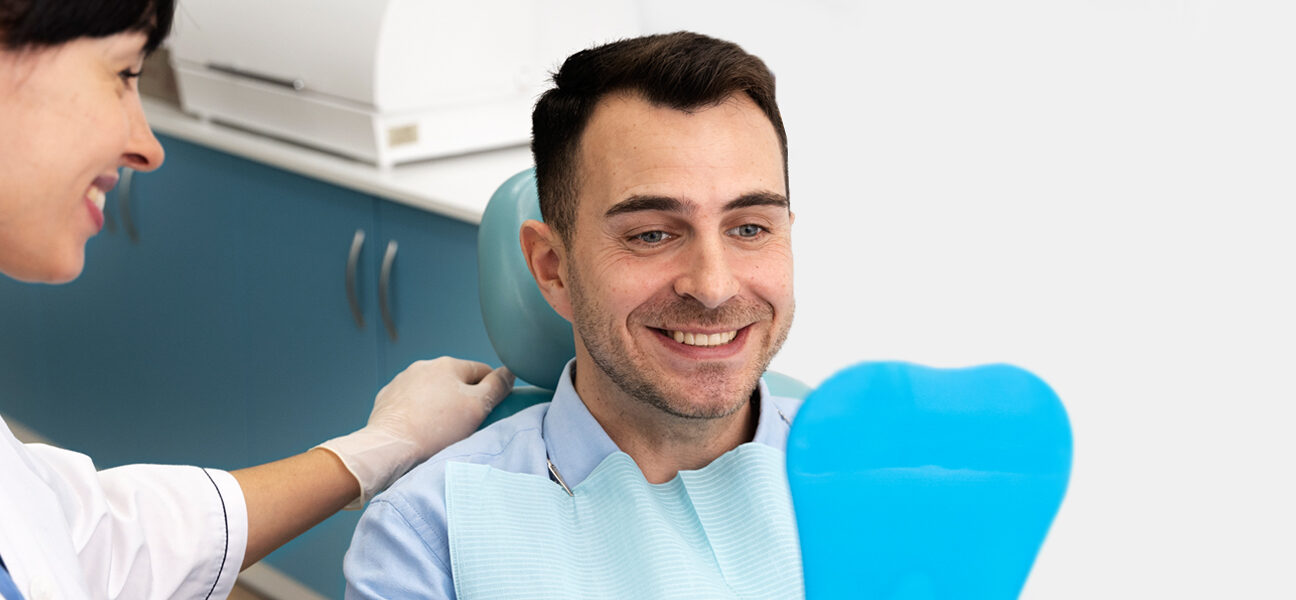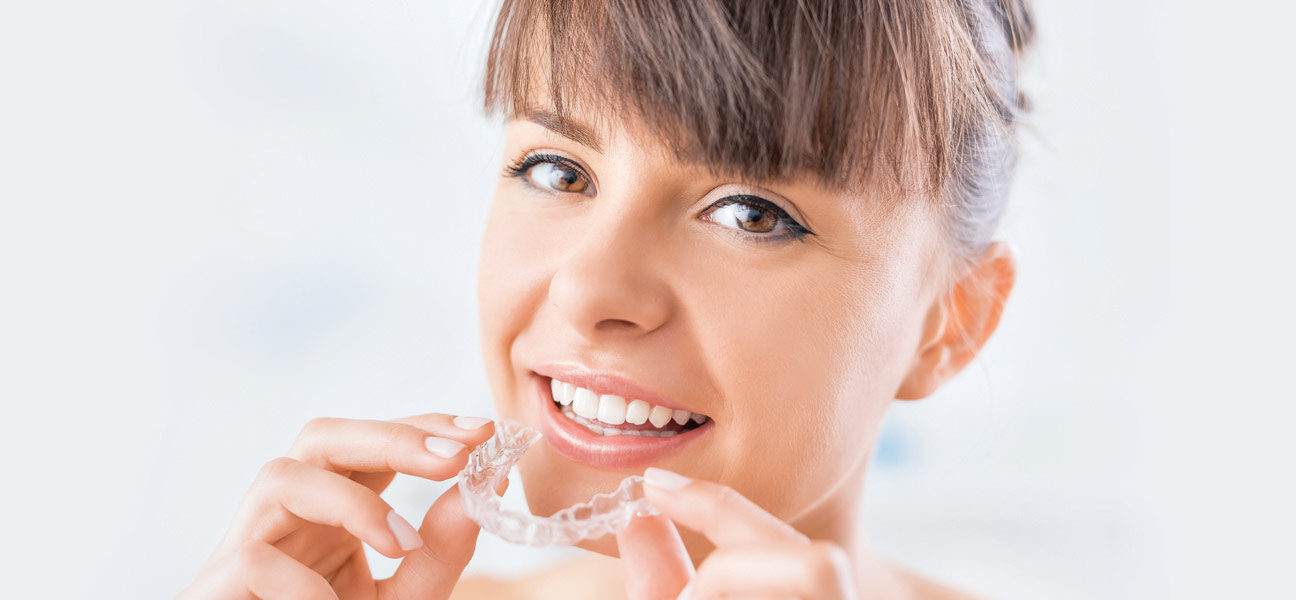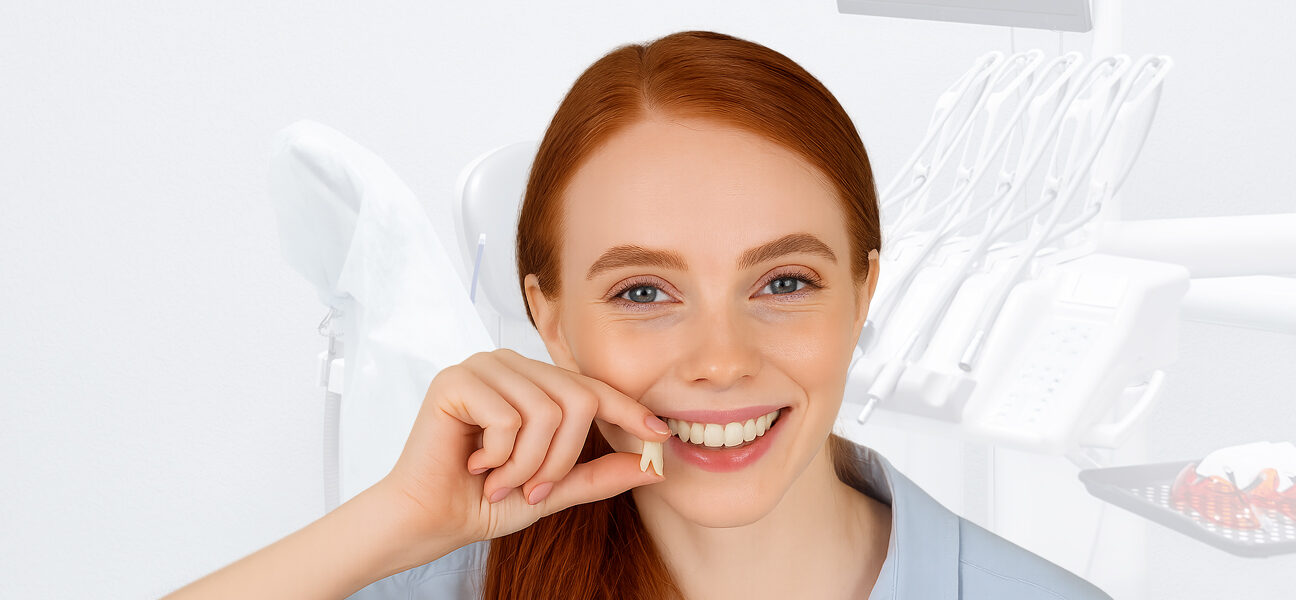Category: Blog
On-the-go Products to Keep Your Smile Radiant
You know that the daily routine of cleaning your teeth and gums through teeth brushing and flossing is crucial in maintaining a beautiful, radiant smile. However, there is a big chunk of the day when you’re not at home, and thus have access to your toothbrush and toothpaste.
At work you don’t want to get up every so often to go to the bathroom to floss your teeth after every snack you eat. It’s also spring, and summer is on its way, so many people are heading out on vacation where you’re more likely to indulge in rich foods and sweet treats.
It can be hard to keep your smile radiant while constantly on the go, so here are a few products to help you out:
- Teeth Wipes. Teeth wipes are a quick, convenient, discreet way to wipe the surface of your teeth. They have built-in materials and compounds that keep your fingers from getting saliva on them and they keep the germs from your fingers from entering the mouth.
- Travel-Sized Dental Floss. Dental floss is an effective way to prevent plaque from building up and creating cavities. A small, compact-sized dental floss is easy to carry in a purse, laptop bag or pocket.
- Whitening Strips. When it comes to whitening strips, you may think of inconvenient messiness, discomfort and a substantial time commitment. However, there are some teeth whitening strips that don’t require gels or trays and can remove teeth stains in five minutes.
- Specialty Chewing Gums. Chewing gum is a great way to stimulate saliva production and freshen breath. Saliva is your mouth’s natural mouth wash and it washes and dislodges germs, bacteria and food debris that would turn into cavity-causing plaque. There are some gums that go beyond temporarily giving you fresh breath and a clean mouth feeling. Some gums, such as Trident Xtra Care contains added nutrients such as calcium which strengthens teeth and fills in crevices on and around teeth where plaque can accumulate.
- Pocket Sulcabrush. These brushes have tapered bristled tips designed to fit in between teeth and around the gum line. It is recommended by some dentists to supplement flossing.
- Green Tea Mints. Mints are a good way to freshen breath and increase saliva production. These green tea mints contain green tea extract which is believed to reduce cavities.
- Proxabrush Tapered Travel Bristle Brush. These soft-bristled brushed are pointed and tapered in a way to clean debris from on and between teeth.
- Proxi-Stick. This soft plastic dental pick and perio-aid bends providing the removal of food and plaque even in the hard-to-reach places. It helps keep teeth clean and bright and gums healthy. Moreover, they are inexpensive and compact, allowing you to carry multiple ones in a small case that you can easily fit into your pocket.
- Peroxide Teeth Whitening Pen Gel Tooth Cleaning Bleaching Kit. Want an easy, quick, discreet way to brighten your smile on the go? Teeth whitening gel pens contain fast-acting bleaching agents and an easy, quick way to apply the gel onto the teeth.
- Floss Picks. These disposable, plastic flossing aids make flossing quick, easy, clean and hygienic. On top of this, they are cheap and can be found at the grocery store.
- Limit Snacking and Drink Plenty of Water. Constant snacking causes food particle and bacteria to build-up faster than cleaning it out. Some snacks such as crackers, dried fruit and pretzels are especially notorious for leaving food particles between teeth. Drinking plenty of water is a great way to regularly clean out food particles. Water is good for the body and doesn’t include any added sugars to add to the plaque build-up.
A busy lifestyle and travel are not excuses to let your oral hygiene slip. There are many tools and products available that can help you keep your radiant smile while on the go.
Besides daily, at-home oral hygiene, regular dental office visits are also needed for optimal oral health.
If it has been longer than six months, contact us at Lincoln Dental Associates today to learn more about preventative dentistry in Lincoln NE and to schedule an appointment.
How Getting a Cleaning Every 6 Months Saves You Money
A great number of the human population tends to avoid sitting in a dental chair at all costs. However, just like it is extremely important to change the oil in your car on a regular basis, the same goes for the upkeep of your oral health. Not only will seeing a dentist every six months keep your mouth happy and healthy, it will save your bank account from taking a major hit. Yep, that’s right, regular visits can save you money.
You might think that having regular dental visits, without signs of a toothache or decay, is throwing money into the wind. You would be wrong. The price of an average co-pay for regular cleanings is much less than the cost of extreme-dental problems, such as restorative work and costly repairs.
For example, did you know that a cavity that is left untreated to the point of experiencing pain will most likely require a root canal? With routine visits a cavity can be treated in the early stages with a simple filling, which will put a much smaller dent in your wallet.
Let’s talk benefits:
- Having your teeth cleaned will remove harmful plaque, stains, and give your teeth a healthy polish
- You will avoid gum disease, which can lead to chronic halitosis and tooth loss
- Tooth loss = dentures or dental implants, which can be on the costly side when it comes to dental treatment
- Preventative measures, such as fluoride treatments and sealants can fight off harmful bacteria
- Cavities and gum disease do not just go away, but with regular checkups you can keep them from becoming a big (and expensive) problem
Regular dental visits are not the only thing that can save you money. Maintaining your oral health daily is extremely important. Brush your teeth (at least) twice a day and floss (at least) once a day. This can help make sure your dental health remains “right as rain.” For more information on how to keep your mouth healthy, contact our office today, our friendly and knowledgeable staff can answer any dental questions you may have.
Get Your Spring Cleaning for World Oral Health Day
This time of year brings a lot of smiles at Lincoln Dental Associates. March has a lot of fun and excitement including St. Patrick’s Day, college basketball March Madness, and spring cleaning.
March 20th is the first day of Spring. Leading up to this day is a time of renewal, which for most of us is symbolized in cleaning out of the old and replacing it with something new. We clean our homes and give them new, fresh looks. We go out into our yards and plant our gardens while looking at the green grass, budding trees and flowers and chirping birds.
While we are cleaning out our closets and switching out drapery, linens, bedding and décor, why not also invest in sprucing up our smiles?
Coincidentally, March 20th is also World Oral Health Day. Since 2007, a day is set aside to educate the public about proper oral hygiene and the importance of a healthy mouth and we’re celebrating all spring long!
Each year, there is a different theme. This year’s theme is Say Ahh Think Mouth Think Health.
The 2018 World Oral Health Day, which is advocated worldwide and put on by the World Dental Federation (FDI), emphasizes the connection between the health of the mouth and the health of the rest of the body.
More and more research has been conducted concluding that how healthy or unhealthy one’s mouth has a correlation to their overall health and vice versa. For great overall health, one’s teeth and gums must also be healthy. One’s teeth and gums must be healthy for great overall health.
A healthy mouth, is more than giving you a beautiful smile.
As the sunny, cheerful days of spring replace the gloomy and cold days of winter,
How to Get That New Spring Smile
How do jump into spring with a new, refreshed, revitalized smile? Here are some basic places to start:
Practice excellent at home oral hygiene. A bulk of one’s oral care happens at home. Adequate at-home oral hygiene consists of:
- Brushing twice a day with fluoride toothpaste for two minutes each time
- Flossing at least one a day (be sure to floss both sides of each tooth and just below the gum line)
- Switch out your toothbrush every three months
- Use a soft to medium bristled toothbrush and brush the teeth and gums in a gentle circular motion
- Use a toothbrush or scraper to clean off the surface of your tongue
Visit the dentist regularly for a cleaning and check-up. Visiting the dentist every six months is equally important as at oral hygiene. While the dentist office may not be your favorite place to be, the trained, experienced eye of a dentist can spot dental health issues that you can easily overlook and administer important, prompt treatment to prevent the issue from getting worse. The cleaning done at the dental office is also more thorough than what the best at home cleaning can provide.
Watch what you eat. A diet high in foods and drinks packed with sugars, acids, and simple carbohydrates provide a catalyst for the formation of plaque. Food that is hard and sticky can also leave food particles and bacteria on the surfaces of teeth and in between teeth. With the more plaque, the higher the chance one has of getting cavities and/or gum disease.
Drink plenty of water. Over half of our bodies are made of water. We need water to survive. While the common drinks we enjoy have water in them, they also contain potentially high levels of sugars and chemicals that lead to the destruction of tooth enamel and weight gain.
Pure water has no sugar nor calories, making it great for rising the mouth out between meals and snacks. The water can wash away food particles when a toothbrush isn’t handy without adding more plaque-causing sugar.
Drinking water is also necessary for one’s overall health, including the proper functioning of organs, clearer skin, improved focus and cognitive abilities and bettering one’s mood.
Spring is a time of renewal. Some spring cleaning of your teeth and gums for World Oral Health Day now can lay the groundwork for many years of good oral, and overall health.
Whether you already have a good at home oral hygiene routine, or feel too embarrassed to go to the dentist, contacting us to schedule an appointment with us is an important step in transforming your smile for Spring.
Everything You Need to Know About Whitening Your Teeth
Your smile may not be as vibrant as it uses to be. Perhaps with all the years of drinking soda, coffee, and tea and eating citrus and tomato-based products, your teeth have gone from pearly white to a worn-out, unappealing yellow.
Now you feel self-conscious about your smile and about it giving away your age.
When you look at your teeth, whitening them may be the first thing you think of.
Before committing to a teeth whitening system, you must know there are two main types of teeth whitening (or bleaching) systems: at-home treatments and professional teeth whitening.
While most people opt for the at-home whitening that you can find at a local store because it is cheaper and one can do it in the privacy of his or her own home, it tends to offer limited results and often isn’t strong enough to remove the deep, stubborn teeth stains.
Professional whitening does a better job of removing those tough teeth stains. In-office teeth whitening also provides immediate, noticeable results that last longer. It does cost a little more than at-home teeth whitening, but it isn’t as expensive as you might think it is.
Our Teeth Whitening Process
There are multiple methods of professional teeth whitening. One common way is when the dentist applies teeth whitening gel, followed by exposing the teeth to a UV light to activate the whitening gel in the office.
Another form of professional teeth whitening is through custom bleaching trays. This is the teeth whitening method you’ll find here at Lincoln Dental Associates. We’ll take impressions of all your teeth on your upper and lower jaws to custom-make your personal teeth bleaching trays. We’ll also give you Opalescence whitening gel to put into the trays and you can still have professional results in the comfort of your own home.
This effective way of bleaching or whitening teeth has proven to be very popular among patients who not only like its effectiveness, but that it can be done whether you’re at home, sitting at your desk in the office, or traveling.
On average, it takes just two weeks for patients to see noticeably whiter smiles. Our tray system is also competitively priced and affordable, making a brighter, whiter smile more of a reachable reality.
How Does Teeth Bleaching Work?
Most teeth bleaching or whitening products contain the active ingredient carbamide peroxide. This ingredient breaks down to form hydrogen peroxide which works to remove stains both on the surface of teeth and deep stains within teeth. For the hydrogen peroxide to reach stains, it seeps into the tooth enamel.
Teeth Bleaching and Tooth Sensitivity
It isn’t uncommon for patients to experience some amount of tooth sensitivity and discomfort during and immediately after the teeth whitening process.
The tooth sensitivity is the result of the nerves inside the teeth getting exposed as the hydrogen peroxide break through the tooth enamel.
The concentration of hydrogen peroxide is higher in our professional teeth whitening treatment than in an at-home teeth whitening kit you can buy at the store.
As a result, you may feel temporary teeth sensitivity after using our teeth bleaching trays. Besides tooth sensitivity, patients may also experience irritation of their gums, the pulp of teeth, the roots of teeth, and sensitivity on other soft tissue of the oral cavity.
The amount of sensitivity and discomfort will be determined by the bleaching method and product used as well as the individual patient’s response to the whitening process.
The tooth sensitivity should not last more than a few days after treatment. To help ease the discomfort of sensitive teeth, we recommend patients do the following:
- Space out one’s bleaching treatments
- Avoid prolonged teeth whitening
- Use toothpaste or prescribed teeth gel for teeth sensitivity
- Gently brush your teeth with a soft-bristled brush and lukewarm water
- Avoid or limit your intake of hot or cold foods and drinks
Professional teeth whitening, or bleaching provides the fast, long-lasting result you’re looking for at a price that is less than you’d expect. With Lincoln Dental Associates, you’ll be able to conveniently whiten your teeth wherever you’re most comfortable.
If you want a younger, more vibrant smile, contact us today to schedule an appointment and see if our professional teeth whitening in Lincoln NE is the right solution for you.
How Does Invisalign Work?
You may have been told that you may need braces to correct your bite or to reposition certain teeth to their correct position.
The thought of braces may scare and intimidate you. You hear braces can be expensive, uncomfortable, make it hard to care for your teeth and gums. Above all, they make your smile look childish.
Contact Our Dentist at Lincoln Dental Associates
You’re then told of Invisalign. Your bite imperfection is slight enough that you’re a candidate for this alternative orthodontic treatment.
Invisalign seems like a great option. They do the same work as braces, but they are clear so nobody will know you’re wearing them.
How exactly do they work? They must be effective if they are recommended as an alternative to braces.
How Does Invisalign Work?
Invisalign uses a series of clear, plastic trays that fit snuggly over the teeth. The trays are mailed to your home. Patients wear each tray for one week. Each tray will be slightly different from the previous tray as it will continue the shifting of the teeth to the desired, proper alignment.
The length of your treatment will depend on many factors such as how much your teeth need to be moved and your dedication with treatment. Typical Invisalign treatments last 12-18 months.
Over the course of your Invisalign treatment, your teeth will be gently and gradually shifted into their correct positions. You dentist will recommend one or two check-up appointments during your treatment. Most dentists recommend Invisialign patients come back in 6 weeks for their progress to be assessed.
The Invisalign treatment will begin with the first consultation with your dentist.
At this first consultation, the dentist will discuss the Invisalign process in detail, go over your dental alignment goals and determine whether Invisalign is the best treatment option for your wants and needs.
If it is determined that Invisalign will be a great fit, your dentist will use a 3D digital scanner to get images of your teeth. Some dentists will use impressions instead to capture one’s bite and teeth. These images (or molds) will be the foundation on which the dentist will build your Invisalign treatment plan on. Your dentist will show you where your teeth will move and shift and how long your treatment plan will be. You will also be allowed to get a sneak-peak of your new, transformed smile.
Where you live will play a big role in how much your Invisalign treatment will cost. Big cities with dense populations and high costs of living will see significantly higher Invisalign costs than a rural town with a low cost of living.
At the completion of their Invisalign treatment, patients will have a final assessment by their dentist. Some patients may be advised to continue with a retainer that is worn at night to maintain a straight smile and correct teeth alignment. These retainers can be traditional metal retainers or clear retainers made of the same clear plastic as the Invisalign trays.
Book with our Dentist in Lincoln, NE
Invisalign is an effective way to move and shift teeth into proper positioning without the negative effects of traditional braces. Each tray is slightly different from the previous tray so that your teeth will be moved gradually and without the soreness.
If you’re curious about Invisalign and how it can help you achieve that straight smile you’ve always wanted, contact Lincoln Dental Associates today.
How to Start Your Children’s Dental Health Off on the Right Foot
Children’s dental health month just wrapped up, but your child’s dental health care needs to be taken care of year-round.
If you haven’t scheduled an appointment with us for your child, and it’s been more than six months since his or her last appointment, we recommend you do so soon.
At Lincoln Dental Associates, we want your child to have strong and healthy teeth from the very beginning. Regular visits to our office plays an important role in this process.
We also want to help you take care of your child’s teeth since good, proper oral hygiene happens at home.
Whether you’re expecting your first child or you have recently welcomed your new addition to your family recently, here are some recommendations on how to start your children’s dental health off on the right foot:
A Little About Baby Teeth
A baby’s teeth begin growing ad forming before he or she is even born. At six months, a baby’s first set of teeth begin erupting through the gum line. By the age of three, all the baby teeth should have erupted. From age six through twelve, a child’s baby teeth will fall out, giving way to the adult, permanent teeth. Wisdom teeth are the last to grow in, often around the age of 21. In some cases, the wisdom teeth will be pulled out to ensure proper alignment of other teeth.
Baby teeth and adult teeth often come-in and fall out in pairs and the order in which they come in will also dictate the order in which they fall out.
A Baby’s First Visit
We highly recommend that parents bring their babies in for their first dental appointment as early as possible, even before any of their teeth have erupted. This is often around six months of age. By the age of three, we would like to see your child for his or her first dental examination and cleaning.
The earlier that a child is introduced to the dentist and the dental office, the less frightened they will be of going to the dentist. The purpose of the first dental office visit is to introduce your child to the dentist and the dental office environment. Even before their first teeth erupt, our pediatric dentists can diagnose possible, future dental issues that the parents should be aware of.
How to Care for Your Child’s Teeth
It is recommended that parents begin caring for their child’s oral health as soon as possible. Before any teeth erupt, a moist, soft washcloth should be gently massaged over the baby’s gums. As the baby teeth grow in, a soft, child-sized toothbrush with a small amount on kid-safe toothpaste is to be used. Parents should brush their child’s teeth until they are old enough to brush their teeth themselves. At this age, it is recommended that flossing has become a part of the teeth cleaning routine.
By the child’s first birthday, he or she should see their pediatric dentist every six months for a check-up and teeth cleaning.
Besides regularly wiping your baby’s gums with a moist, soft washcloth, it is highly recommended that babies don’t go to be with a bottle of milk or juice. The sugar of these beverages can accumulate on the surfaces of gums.
Thumb sucking is also another habit that should be broken after the age of two. Prolonged thumb sucking can cause teeth to shift, become crooked and protrude out. Severely crooked teeth can lead to the premature losing of baby teeth and improper growth of permanent teeth.
Your child’s dental care is important and the sooner it is properly cared for, the great the chance your child’s teeth and gums will be off to a good start. Proper at-home teeth cleaning and flossing and regular, six-month dental exams and cleanings are crucial components in starting your child’s dental health off on the right foot.
At Lincoln Dental Associates, we want your child to have the best oral health possible. We’ll also help you instill proper oral hygiene in your children so they can have strong teeth and gums for many years to come. If you haven’t already done so, contact us today to schedule an appointment for your little one.
When Tooth Extraction is Necessary
As dentists, we do all we can to avoid extracting a patient’s tooth or teeth. This is because permanent adult teeth can’t be replaced by another natural tooth like baby or primary teeth can. Whether the tooth gets knocked out or falls out due to extensive tooth decay, missing teeth immediately ruins one’s smile, makes it more difficult to speak clearly or chew properly and it could lead to additional oral health conditions. On top of that, missing teeth can lessen one’s self-confidence and overall well being.
It is important to take good care of one’s natural, permanent teeth. However, sometimes the best oral health measures involve tooth extractions. Below are common conditions that warrant tooth extractions:
Broken Teeth
Accidents happen when teeth get knocked loose or are knocked out completely. While teeth that have been lost due to trauma can be saved if the tooth is found, handled correctly and is quickly re-inserted by a dental professional, sometimes the tooth is not found, or the roots are too damaged or too much time lapses and the tooth dies.
For teeth that have been broken or severely chipped, they may need to be extracted as they have become too compromised and vulnerable for additional breakage or tooth decay.
Teeth That Are Decayed
While most instances of tooth decay can be treated with fillings, crowns or root canals, sometimes the decay becomes too widespread for the tooth to be saved. Abscessed teeth are prime examples of this. Abscessed teeth can become very painful and can pose the risk of spreading tooth decay and gum disease to nearby teeth and gum tissue. To ultimately save the other teeth and to keep the bacteria from destroying the gum tissue and the underlying jawbone, the abscessed tooth is often extracted.
Crooked or Misshapen Teeth
Sometimes patients have teeth that don’t grow in correct position. Crowded teeth, overbites and under bites can result as can embarrassing, large gaps in between teeth. This kind of tooth extraction is often done on young patients who are getting prepared for braces or young adults getting their unnecessary wisdom teeth removed. This kind of smile preserving tooth extraction, however, can and is done on adults as well to help give them the straight, beautiful smile they need and deserve.
Tooth Extraction Solutions
When a tooth or teeth are extracted, there are a few different treatment options to fill in the embarrassing gap or gaps left over. The most common treatments are implants and bridges.
Our Lincoln NE dental implants are ideal for closing tooth extraction gaps left from a single tooth extraction or multiple tooth extractions that aren’t located near each other in the mouth. Implants are made of a titanium post that is inserted into the jaw bone, an abutment and a natural-looking artificial crown. These crowns are made of durable, long-lasting porcelain or composite resin and is colored in a way to make it blend in with your natural teeth. Since the crown is attached to the post that is securely inserted into the jaw bone, Lincoln NE dental implants last many years, can be taken care of the same way you care for the rest of your natural teeth and gives you a secure, comfortable, confident wear.
Dental bridges are used to replace the gaps caused from the extraction of multiple neighboring teeth. The same realist-looking crowns are used and may or may not be held in place by dental implants. Sometimes the intact, natural teeth on either side of the gap are themselves covered with crowns to complete and securely affix the bridge. Like dental implants, dental crowns can last many years, look like your natural teeth and won’t accidentally slide or fall out of the mouth from harsh use.
While we a Lincoln Dental Associates do all we can to improve the look and health of our patients’ smiles without extracting any teeth, sometimes the best way to ensure a patient’s superb oral health is by tooth extraction. Broken or abscessed teeth are common reasons teeth need to be extracted. After teeth are extracted, dental implants and dental bridges are two of the common ways to treat gaps that extracted teeth leave behind.
Whether you have an abscessed tooth or your lost tooth can’t be found, the dental professionals at Lincoln Dental Associates can help restore your smile. Contact us today to learn more about tooth extractions in Lincoln NE.
Five Reasons You Might Need a Tooth Extraction
Everyone wants to be able to use their natural teeth for as long as possible. For that reason, tooth extraction is usually the last method that a dentist will recommend to restore your oral health. However, there are situations in which the removal of one or more teeth would be the best option for preserving the health of the teeth and gums. At Lincoln Dental Associates, we will be able to perform a safe extraction as comfortable as possible in Lincoln, NE. Here are some common reasons why a patient might need a tooth extraction.
Decay or damage
There are several options available for treating a damaged or decayed tooth, such as a filling, dental crown, or dental bonding. But when a tooth is too damaged, it might be best to remove it altogether to preserve the health of the surrounding teeth and tissues in the mouth.
Diminished bone density or gum tissue volume
Gum disease, certain medications, and some chronic and systemic illnesses can lead to diminished jawbone density or gum tissue recession. Without treatment, this can lead to tooth loss.
Crowding and impaction
If there is not adequate space along the jawbone for all the teeth, the teeth may be pushed close together or overlap. Generally, this is unhealthy because crowded teeth are harder to clean, which can lead to tooth decay. More serious oral health issues can also occur if a tooth is impacted, such as an abscess.
Complications associated with treatment for chronic illness
Certain treatments, such as chemotherapy and radiation, can have adverse effects on oral health, leading to severe decay, which may then lead to tooth loss.
Wisdom tooth extraction
The teeth that are extracted the most frequently are the third set of molars, commonly referred to as wisdom teeth. These teeth erupt after all the permanent teeth have already settled into their positions, so there is usually not enough space to accommodate them. Impaction is a common problem, as well as tooth crowding. Extraction is generally recommended for these teeth to avoid oral health issues that may occur as a result,
If you need a tooth extraction in Lincoln, NE, you can trust the team at Lincoln Dental Associates will be able to perform the procedure safely.
3 Warning Signs of Periodontal (Gum) Disease
It can be tough to diagnose gum disease on your own. At first, there is very little pain, if any. Without any clear warning signs, how do you know? More than half of U.S. adults suffer from some form of the disease.
Gum Disease Lincoln dentist
Because gum disease is so common, your dentist in Lincoln NE, 68505 wants to warn you of the symptoms. It is important to be aware so your gum disease Lincoln dentist can start treatment as soon as possible.
- Gums That Appear Red and Swollen: Healthy soft tissues of the mouth should be pink. Also, gums should be tough enough to handle daily brushing and flossing. Therefore, if you notice swelling, irritation, or redness, those are signs of gingivitis. This is the beginning stage of gum disease.
- Gums That Bleed When You Brush or Floss Your Teeth: Do you see blood in the sink when you brush and floss your teeth? If so, this is a telltale sign that your gums are not healthy. As a result, now is the time to contact your dentist near Meadowlane to schedule a visit. Keep in mind that the sooner gum disease is diagnosed, the more likely it can be reversed.
- Bad Breath That Doesn’t Go Away: Persistent bad breath odor that doesn’t respond to good oral hygiene habits is a clear sign of gum disease.
What Should I Do if I Notice the Signs of Gum Disease?
Fortunately, gum disease treatment in Lincoln, NE can be simple if detected early. In fact, early stage gingivitis can easily be managed to improving oral care at home and professional teeth cleanings.
Late stage gum disease, or periodontal disease, will require more aggressive treatment. Your dentist near Bethany may perform deep dental cleanings called scaling and root planing. For advanced cases of periodontal disease, you will be referred to a specialist for more aggressive care. Your gum disease Lincoln dentist may also recommend antibiotics. This type of therapy is used to fight the infection.
Lincoln Dentist Near Me
If you have exhibited the early signs of gum disease, or if you need to schedule a routine dental exam, call your team at Liberty Dental Associates today.
What to do During a Dental Emergency
You can’t prepare for a dental emergency, and they usually can’t be avoided. Therefore, when problems arise, patients don’t always know how to handle them. Should you go to the ER? Is it safe to wait until the dental office opens? Could you even wait until your next routine check-up? Chances are, the correct answer is no to all the above. Your Lincoln dentist is always available when you need help.
Lincoln Dentist Near Me
There are four steps you should take to keep yourself pain-free and safeguard your health.
1. Call our Team Right Away: When faced with a dental emergency, call your dentist in Lincoln NE, 68505, immediately. If your Lincoln dentist does not provide emergency care, consider finding one who offers this service. When you contact your emergency dentist, a staff member will assist you. You should receive instructions over the phone on how to relieve pain and manage the problem temporarily. This is also the time to ask any questions and book an appointment.
2. Keep the Area Clean and Stop Bleeding: First and foremost, it is important to control any bleeding and gently clean the injured area. Use only cool water to clear away any dirt or debris. Never brush the affected area unless your dentist near Meadowlane instructs you to do so. Use a clean cloth or sterile gauze to apply gentle pressure to control bleeding. If this isn’t enough, apply a cold compress.
3. Retrieve Any Knocked Out Teeth or Restorations: If you knocked out a tooth or a dental restoration, be sure to look for it immediately. If possible, a whole or partially avulsed tooth can be put back in place. If you can’t locate the tooth or if a piece is missing, store what you have in milk or cool water until you can get to the dental office.
4. Take Pain Relievers & Use Ice Packs: Take OTC pain relievers as directed to manage pain. Do not apply aspirin directly to the affected area. This can cause more damage. Instead, apply ice to prevent swelling and reduce pain. Put the cold compress on the cheek outside the damaged tooth every 20 minutes as long as the discomfort continues.
Dentist Near Gateway Mall
At Lincoln Dental Associates, our dental team makes every visit as pleasant and stress-free as possible. Emergency care appointments are no different. We understand that these are worrisome situations. For that reason, we are here to help relieve your pain and anxiety. So, when faced with a dental emergency, call your dental team right away.









